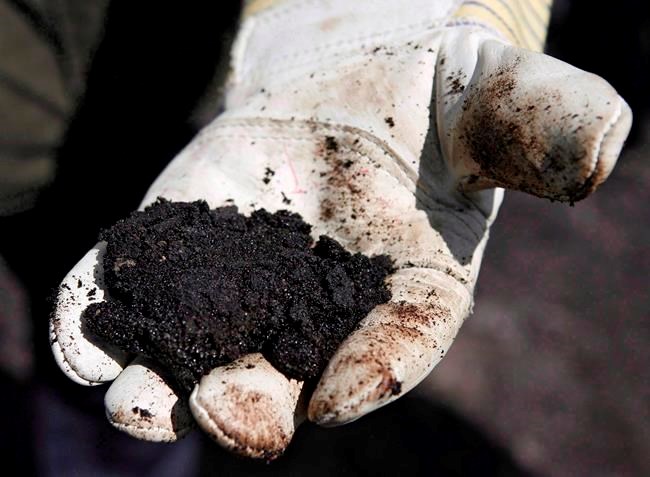EDMONTON — Alberta's highest court has overturned regulatory approvals for a $440-million oilsands project that would have encroached on land a First Nation considers sacred.
In a strongly worded judgment, three Alberta Court of Appeal justices ruled that the Alberta Energy Regulator violated the honour of the Crown when it approved the proposal even though the development infringed on an agreement between the province and the Fort McKay First Nation.
"The honour of the Crown ... does require that the Crown keep promises made during negotiations designed to protect treaty rights," wrote Justice Sheila Greckol.
"It certainly demands more than allowing the Crown to placate (the band) while its treaty rights careen into obliteration. That is not honourable. And it is not reconciliation."
The dispute arose over an area known as Moose Lake.
The band says it is the last place its members can go to practise treaty rights and live in a traditional manner. Fort McKay, north of Fort McMurray, is surrounded on three sides by oilsands development and 70 per cent of the band's traditional territory is taken up by mines.
In 2001, the band began talks with the province to preserve Moose Lake and a 10-kilometre buffer zone around it. Former Alberta premier Jim Prentice signed a letter of intent with the band in 2015 and three years later Fort McKay thought it had a deal, although it was never ratified.
That year, the Alberta Energy Regulator approved Prosper Petroleum's 10,000-barrel-a-day, steam-assisted bitumen extraction project that would have come within two kilometres of the lakeshore.
The regulator argued before the Appeal Court that its mandate forbids it from considering issues of Indigenous consultation. Nor could it consider deals not yet in force.
Not good enough, said the court.
"The public interest mandate can and should encompass considerations of the effect of a project on Aboriginal Peoples," wrote Justices Barbara Veldhuis and Jo'Anne Strekaf. "To preclude such considerations entirely takes an unreasonably narrow view of what comprises the public interest."
The regulator was also wrong to say that cumulative effects of development are beyond its purview, Greckol wrote.
"The Crown has long been on notice that the piecemeal approach to addressing (the band's) concerns through consultation on individual projects has not adequately considered the cumulative effects of development."
Fort McKay Chief Mel Grandjamb said he was "ecstatic" with the ruling, which he suggested will change the relationship between First Nations and Alberta's energy regulator.
"In the past years, they grouped us together with the general public and called us stakeholders. Treaty rights were never addressed. This is going to change that."
The province has continued to talk with the band. Grandjamb said he's pleased with the discussions and expects a final settlement on Moose Lake in the coming months.
An email from Prosper CEO Brad Gardiner said the ruling reflects problems with Alberta's energy regulation.
"This decision reflects a failure of the regulatory framework for the energy industry and a failure of the Crown to address the concerns of Fort McKay First Nation. These issues need to be addressed by the government."
The court has instructed the regulator to reconsider the project. The band has said it's willing to see it go ahead with some changes to protect Moose Lake.
That's where Grandjamb was heading Friday.
"I'm going to try to sneak out and see something I can shoot at to put a meal on my plate tomorrow."
This report by The Canadian Press was first published April 24, 2020
— Follow at @row1960 on Twitter
Bob Weber, The Canadian Press


